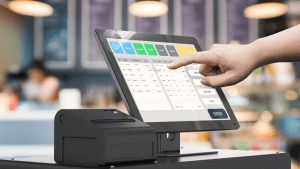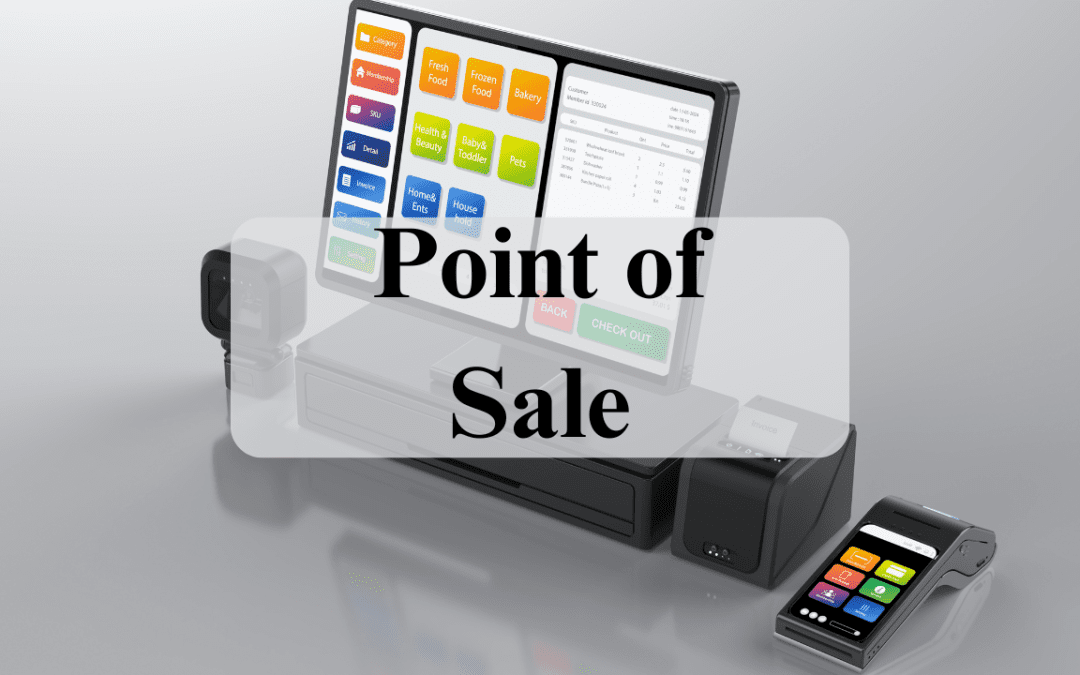Point of Sale system is much more than a money register. It’s the spine of any retail business, assisting with sales, listing, and buyers management. Whether you run a small shop or a big store, a POS system creates a life uncomplicated. But how? Let’s travel over what makes POS systems so precious and look at their kinds, dominance, and drawbacks.
A Short History of Point of Sale Systems
This system narrative begins with James Ritty, who created the first cash register to curb worker theft back in 1879. This was a mechanical device, and every transaction made it “ding” loudly, also tracking sales.

They included speed in the improvement of electronic cash registers and better data storage by the 1970s. The computers of the 1990s made POS systems more intelligent, including features that track inventory and report on sales. Modern POS systems, today, are advanced tools that work online or offline, even on phones and tablets.
What is a Point of Sale System?
This system is where customers pay for their purchases. But it does much more than process payments. It tracks sales, manages stock, and collects data to improve business operations.
Types of Point of Sale Systems: Advantages and Disadvantages
- Cloud-Based POS
Cloud-based systems collect data online, manufacturing it reachable from anywhere.
Advantages:
- Easy to use on multiple devices.
- Automatic updates and backups.
- Scalable for growing businesses.
Disadvantages:
- Needs a reliable internet connection.
- May involve subscription fees.

- Mobile POS
These systems work on smartphones or tablets. They would be well liked for small businesses or pop-up stores.
Advantages:
- Portable and easy to set up.
- Affordable for small businesses.
- Perfect for on-the-go sales, like at markets.
Disadvantages:
- Limited features compared to traditional POS.
- May not handle high sales volumes efficiently.
- Traditional POS
These are fixed systems with hardware like barcode scanners, receipt printers, and cash drawers.
Advantages:
- Best for large stores with high sales.
- Durable and reliable for busy environments.
- Can handle advanced features like loyalty programs.
Disadvantages:
- Expensive to buy and install.
- Requires space for hardware.

How Point of Sale Systems Benefit the Business?
- Fast Checkout
POS systems facilitate transactions that are fast and straightforward, avoiding long queues as well as increasing the client’s satisfaction.
- Accurate Stock Management
You update your stock level anytime you make a sale via the system, thereby always avoiding running out of best selling items.
- Clear Sales Analysis
The pos system indicates which products are usually sold most, therefore creating an opportunity to stock which is in demand the most.
- Customer Delight
POS systems also collect customer information, such as purchase history, and can be used to provide special discounts or incentives.
- Easy Business Reporting
Clearly see all your sales, profits, and losses with detailed reports, enabling you to make smarter decisions.
Why Every Shop Needs a Point of Sale System?
A POS is not just a tool but can be a business partner that saves time, reduces mistakes, and allows you better management of your store; hence, it is good to focus on business growth without being worried about the various tasks of daily operation through a POS.
How to Select the Best Point of Sale System?
Points to remember when choosing a POS system:
- Ease of Use: It should be user-friendly.
- Features: Should have options like sales tracking, inventory update, and customer management.
- Budget: It should not exceed your budget without losing its quality.
- Business Size: Small businesses might require mobile POS. Large stores require traditional setup.
Conclusion:
Point of Sale system is highly required for running a retail business. It makes transaction processing faster, keeps tabs on your inventory, and offers insights into your customers’ interests. While there is more to each kind of POS system than pros or cons, the right POS could change your business for good and make you money. It helps you invest in the best possible future.
FAQs:
- What is a Point of Sale system used for?
A POS system runs sales, tracks inventory, and produces reports for shops.
- What type of Point of Sale system is best suited for small shops?
Mobile POS systems are the best complement for small businesses for the reason that they are cost-effectual and reachable.
- Does Point of Sale work offline?
Yes, some POS systems can work offline, but you may lose some functionality till you get back online.
- Would Point of Sale systems come with a high price tag?
The cost is determined by the type and features. A mobile and cloud-based POS is relatively cheaper than a traditional one.
- Can a Point of Sale help in increasing sales?
Yes, it gives information about customers’ preferences and sales trends, which can enable you to enhance your business strategy.
To know about signage, materials, and incredible uses of signage Click Here!

